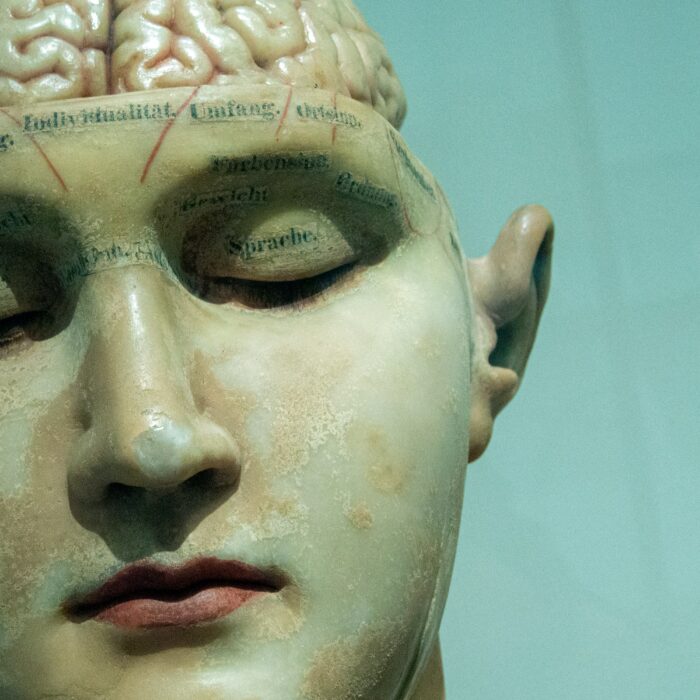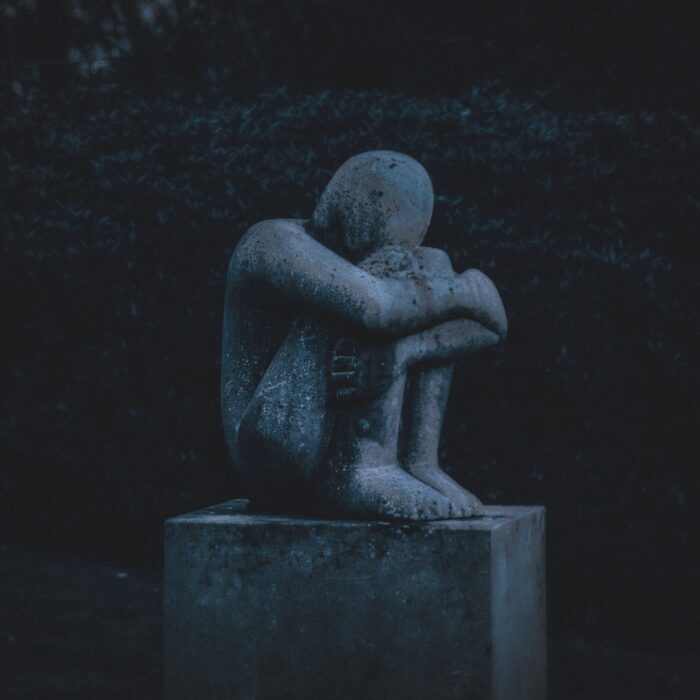You have no items in your cart. Want to get some nice things?
Go shoppingToday is a year to the day since I started to make my wife sick. I celebrate quietly in the kitchen: a small bowl of cold apple crumble with cream.
‘It’s incredibly rare for it to progress at such a rate,’ Dr Korbel had said during his morning visit. He seemed genuinely upset. ‘You should make preparations. Funeral arrangements, last run-through of her will. That sort of thing.’
I’ve never been able to remember the name of the disease they’ve wrongly diagnosed her with – progressive bulbar something-or-other; too many syllables, if you ask me.
I hear noises from upstairs. I finish my food and go to see Avril. She’s drowsy but awake. I administer her with the 200mg of morphine prescribed by Dr Korbel along with my own 100mg shot of trimatanyl, the mystery ingredient causing her illness no-one has as yet been able to detect.
She says something, whether a protest or some feverish nonsense isn’t clear: Avril’s speech was the first thing to go. In the past few days she’s become entirely incomprehensible.
‘It’s alright,’ I say. I tell her I love her and stroke her hair until she’s asleep.
I go out into the garden. I love it here, but it is difficult to maintain. I am growing lamb’s quarters and touch-me-nots. There’s a sheltered corner where I’ll plant an African violet when the summer sets in.
I lie down on the patio and watch the clouds moving overhead.
We met at university. I was a mature student, she an academic. After her first lecture I approached her and told her I’d recently read an essay she’d written on hamartia in Othello. She was impressed. A week later, we talked again. I let slip my age – 37. The same as her, it emerged. We were born on the same day. ‘What are the odds?’ she said; she laughed, touched my hand.
We had our first date a fortnight later. The theatre, of course: a revival of ‘Tis Pity She’s a Whore’, pompous and dull. Afterwards, we went for drinks. We talked.
We went out again a week later. A meal and two bottles of champagne. I’d been saving up for years, so I could afford to splash out. I asked her about herself, about her childhood. Her parents were wealthy. They had had a messy break-up: her father had taken her away when she was six; she had a brother who had remained with her mother. She’d not heard from either of them since.
‘Aren’t you curious about your family?’ I asked. ‘Do you think your mother misses you?’
‘She was psychotic!’ she said, with a laugh.
‘And your brother?’
‘He was younger than me. I didn’t know him.’
She became drunk. In the taxi she cried and told me how lonely she was.
‘I know you are,’ I said. ‘So am I.’
I waited until our third date before I initiated intercourse; our tenth before I asked her to marry me.
I completed my degree, enrolled immediately for a Masters and, after that, began my PhD. All the while with my wife supervising. My thesis was ‘Motive and Pragmatism in ‘Tis Pity She’s a Whore’, in tribute to that instigating date. The process of research and writing I found boring – infuriatingly so – but it did give us an excuse to sit up for hours, talking Whore. Avril would maintain, quite sensibly, that Giovanni, the play’s protagonist, does what he does out of clear-cut guilt and self-loathing.
‘No, he doesn’t know why he does what he does,’ I’d tell her. ‘He’s compelled to act. He comes up with the why afterwards.’
She frowned. ‘At times this whole thing seems less literary research,’ she said, flipping through my manuscript, ‘more… pathological speculation.’
She was right. I was awarded my doctorate, but only with some severe editorialising on her part.
Since then we have been working together, academics first at neighbouring institutes (me at the former polytechnic, she at the university proper) then, after I’d put the hours in – editing a rather arcane but well-received collection of essays on the more minor Elizabethan dramatists, overseeing a Fulke Greville symposium – at the same university. A junior position to my wife, of course.
Naturally, while I beavered away at my own obscure career, Avril’s was taking off: she was invited to edit the Cambridge edition of Marlowe’s letters; she appeared on The History Channel; she presented papers in America. Shortly before her powers of speech evaporated, she had even been invited to write and present a documentary on Jacobean tragedy for Radio 4.
It was hard to know when to put a stop to it all.
She’s awake again when I return indoors. I sit on the edge of her bed and ask if I can get her anything. She’s too drowsy to understand. I could be saying anything. I tell her our department has asked me to design my own undergraduate module. It’s to be called ‘Madness and Macbeth’.
‘Each lecture will focus on a different protagonist who dedicates himself towards something inexplicable,’ I say, all lies. ‘Like Giovanni, the protagonist in ‘Tis Pity She’s a Whore’, giving his life over entirely to an act which, on the surface, seems insane.’
She mutters, low-pitched, free of consonants. She has trouble keeping her eyes open.
The reality, as Dr Korbel put it, is that she could pass away at any moment. I can’t help but think it would be poor form for her death to occur without her realising I have caused it. Poor dramatic structure.
But why? She would want to know.
Why?
Tragedy is a question mark.
I pinch her hard on the forearm. Her eyes bulge open. She used to be so beautiful. Now her hair is a mess, nestlike and grey. Drool seeps from her mouth in a slow, steady flow.
‘You know, you’ve never really told me about your childhood,’ I say pleasantly.
She makes a croaky sound: ‘Mah-jurrr-hurrr…’ My childhood?
‘Yes. Do you remember your psychotic mother? When did your rich father die? Where’s your poor brother?’
But she’s already fallen back asleep, her face sad and troubled.
I go back downstairs, switch on the television and watch the snooker.
I know she pines for them. All these lonely years, without even realising, pining for her forgotten family: a strong, loving mother and a little brother.
That brother. She’s longed for him since she lost him. I know it. And yet, more than she ever suspected – more than she would have ever permitted – she has had him.
And, of course, I’ve had her.

About Richard Hirst
Richard V. Hirst is from Manchester. His writing has been featured in the Guardian, the Big Issue and Time Out, among others. His latest book is The Night Visitors, co-written with Jenn Ashworth.





